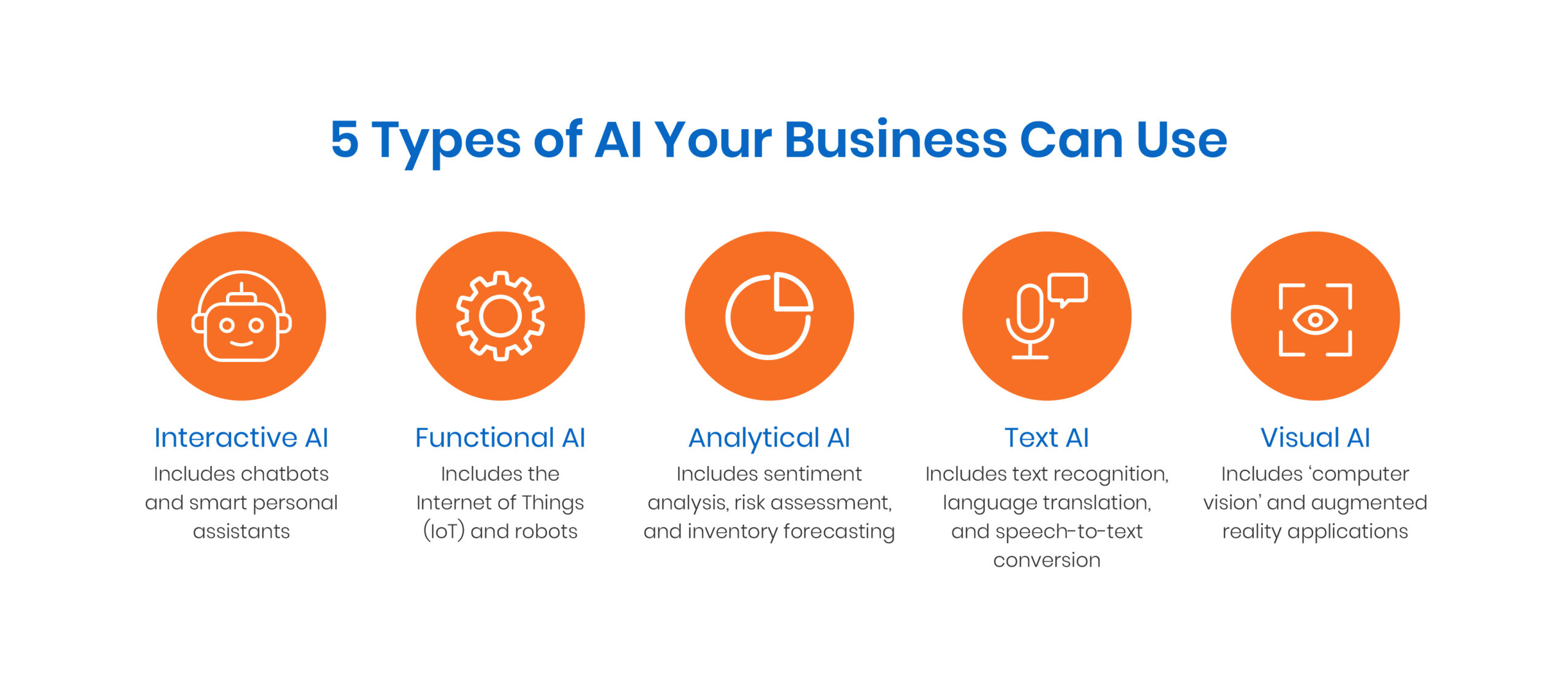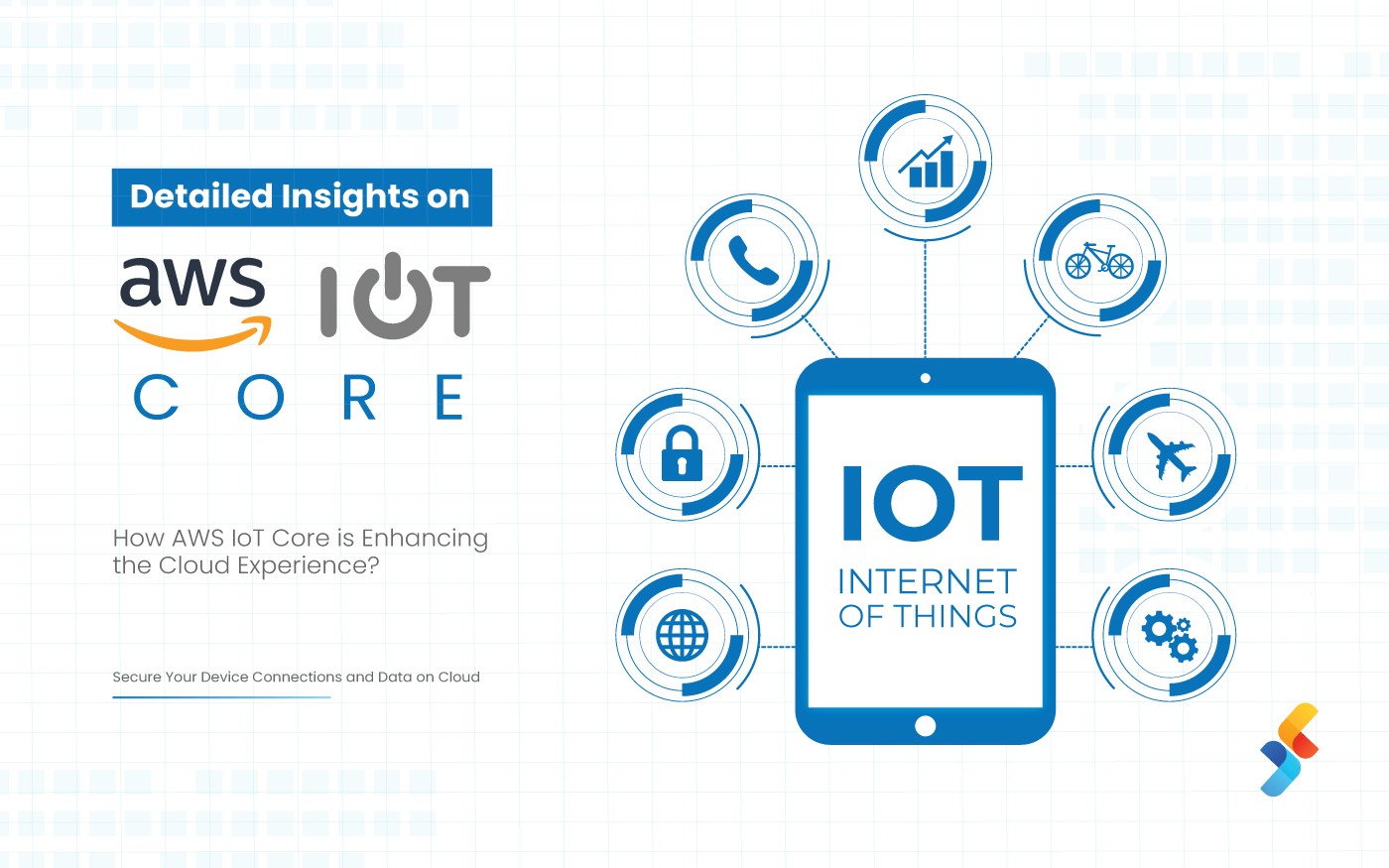While many perceive artificial intelligence (AI) as a futuristic technology, the truth is that AI is already here. For a few years now, companies across industries have been launching moonshot projects that employ AI solutions to augment their businesses.
With AI adoption plans being accelerated due to the pandemic and one in three companies successfully implementing AI, business owners must now seriously consider formulating digital strategies fueled by the power of artificial intelligence.
What AI Can Do for Enterprises Today
AI today offers business capabilities like process automation, cognitive insight, and cognitive engagement. When it comes to use cases for business, AI has applications in nearly every major business function, from marketing to supply chain management.
Marketing: AI can not only help develop effective marketing strategies, but it can also help execute them. Today, AI is used as an integration for chatbots and is also deployed to predict consumer behavior and deliver better product recommendations — all for augmenting customer experience.

Sales: AI can equip sales professionals with insights that help enhance the function. Today, AI can provide sales forecasting, predict customer needs, rank leads based on conversion probability, find opportunities for upselling and cross-selling, and much more.
Research & development: AI is a powerful tool for innovation, and companies across industries are using the technology to develop unprecedented solutions and improve their products and services.
IT Operations: AI for IT operations is so popular that a portmanteau has been coined for it: AIOps, defined by Gartner as the “application of machine learning and data science to IT operations problems.”
Supply chain management: AI can be of great value to supply chain managers with its ability to ensure quality control, create optimized network plans for fleets, and better manage the supply chain through the analysis of goods movement.
Read Why AIOps is the Next Big Thing in IT Operations?
Steps to Formulate a Strong AI-Powered Digital Strategy
The following steps — or rather questions to ask — can help you take a structured approach to leveraging AI to achieve your business objectives.
1. Define your business needs — what problems can AI solve for you?
Before attempting to use AI to fuel your digital strategy, it’s crucial to understand what current or potential issues AI can solve for you. To this end, you need to answer the following questions:
- What long-term and short-term business objective(s) do you aim to achieve?
- What obstacles lie between you and your objective(s)?
- How can AI help you achieve your objectives?
Read Enhance Your Business Performance with AI Chatbots
2. Determine the main value driver(s) — how will AI add value to your business?
Once your business needs have been identified, the next step is to determine how and where AI-powered solutions will be deployed in your business. Based on use cases, there are a few different types of AI that businesses can leverage.

3. Evaluate internal capabilities — do you have the requisite capabilities to build AI solutions?
An internal capabilities assessment can give you actionable insight into whether or not your company has the competency to develop AI solutions. A simple SWOT analysis can help you evaluate your internal capacity to effectively integrate AI in your digital strategy. Try to assess your organization along the following aspects:
- Organizational weaknesses, such as outdated technology, lack of expertise, etc
- Cost position, i.e. your ability to deliver value to customers using available resources
- Looming threats, such as changes in the market and competitors’ activities
- Competitive viability, which is how effectively you can compete with rival businesses
4. Consider consulting a domain expert — is your AI project feasible?
Based on the results of your internal capabilities assessment, you can choose to either build a new solution from scratch or bring in an expert like Successive Digital to formulate, implement and optimize effective AI solutions for your organization.
When choosing an AI consultant, you must consider:
- The depth of their knowledge around AI
- Any relevant past experience they’ve gained with AI implementations
- Their problem-solving approach
- Their ability to deliver a cogent value proposition
5. Conduct a data audit — do you have the data sets that your AI solution requires?
An AI solution is only as good as the data it’s founded on, which is why, based on your business objectives, you must have clarity on what kind of data sets will be required.

After the required data sets have been identified, it’s important to verify their coherence and validity. Any errors must be eliminated through a data audit process to ensure that the accuracy of your AI solution is not compromised.
After a thorough data audit, you’ll need to prepare your data. Categorization, dealing with missing information, and other operations can help you create an immaculate data set.
6. Define your KPIs — how will you measure the impact of AI on your digital strategy?
There can exist a chasm between how you visualized your AI solution and what was delivered on-ground. To narrow this chasm and ensure that your AI solution delivers the desired ROI, it’s important to measure its impact.
To this end, you must define key performance indicators (KPIs) to assess the success of your solution.
AI algorithms can evolve greatly over time and must be monitored to ensure that they’re delivering the desired results. Enterprises must establish continuous monitoring processes to enable the re-training of AI algorithms and maximize the effectiveness of the solution.
Read 10 Emerging E-Commerce Trends Reshaping Future of Online Retail
7. You’re all set! But wait…
Your AI-driven digital strategy is now ready. But now is a good time to take a step back and reassess your strategy to help avoid some common pitfalls.
To ensure your AI-fueled digital strategy has no negative impact on your business outcomes, keep the following key points in mind:
AI is one of many tools you can use: The hype around AI may lead to some organizations viewing AI as a goal in itself. But AI is just one of many tools at your disposal to help you achieve your business objectives. Keeping your focus on the value AI can deliver can help you avoid distractions and get the most out of your AI initiatives.
Don’t put all your eggs in one basket: It’s not generally a good idea to pool all your AI resources into a single, large, ambitious project. Rather, take a portfolio approach that includes both quick wins and long-term projects.
Reskill your talent base: Take a structured approach to reskilling and growing your AI-focused talent base. It’s unlikely that any organization would have enough team members with the right set of skills required for AI projects. This makes reskilling particularly important.
Don’t be discouraged by initial setbacks: Early on in the process, you could face some implementation failures of your AI solutions. These should not discourage you from continuing your investment in AI and uncovering the real long-term value that AI can deliver.
Mitigate risks as you go: You must continuously manage and mitigate the risks that AI can pose. For instance, companies must audit their AI algorithms to catch biases before they negatively impact desired business outcomes.
AI will have a key role to play in innovation
In the current landscape, business growth and innovation are data-driven. There are a lot of opportunities for business leaders and innovators to launch ambitious ventures that can adapt to changing customer needs. AI is one such opportunity that will play a key role in business innovation. AI offers a lot of potential to solve real business problems and deliver new value to consumers.
As AI applications develop and mature across industries, early movers will be able to gain an edge and innovate faster than the competition.
Read Creating Memorable E-Commerce Experiences with Cognitive Commerce












